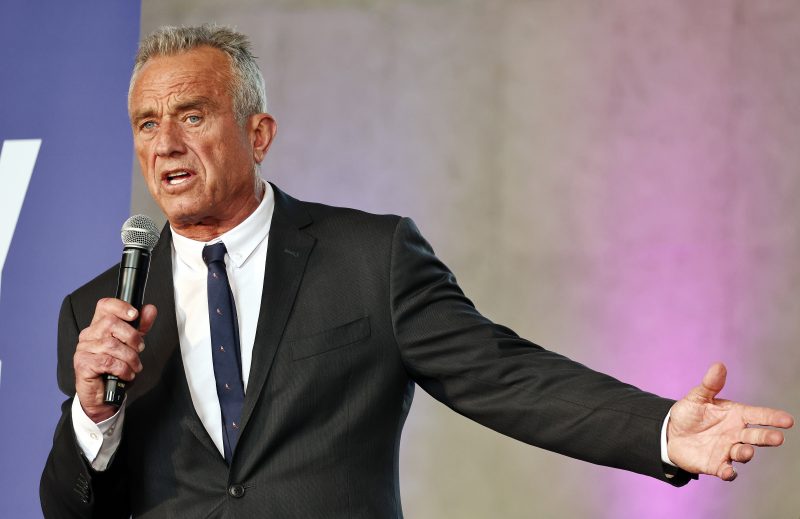In politics, alliances and affiliations often generate significant interest and debate, particularly in the context of elections. One question that has emerged in recent times is whether a vote for Robert F. Kennedy Jr. would harm former President Donald Trump’s political prospects. This inquiry touches upon the complex dynamics of political affiliations, voter behavior, and the influence of prominent figures in shaping electoral outcomes.
Robert F. Kennedy Jr., as a member of the prominent Kennedy family, commands a significant following and influence within certain political circles. His advocacy on issues such as environmental conservation and public health has garnered both support and controversy. On the other hand, Donald Trump, as a polarizing figure who has maintained a strong base of supporters, has been a central figure in the Republican Party.
The question of whether a vote for Robert F. Kennedy Jr. could hurt Trump hinges on several factors. Firstly, the extent to which Kennedy attracts support from individuals who would have otherwise voted for Trump is crucial. If Kennedy’s platform resonates with disaffected Republican voters or draws support from independent voters who lean conservative, it could potentially siphon votes away from Trump.
Furthermore, the ideological differences and policy positions between Kennedy and Trump are likely to influence voter behavior. Kennedy’s emphasis on environmental issues, health care, and civil rights contrasts sharply with Trump’s policies on issues such as climate change, healthcare reform, and social justice. Therefore, voters who prioritize these issues and align with Kennedy’s positions may be swayed to vote against Trump if they view Kennedy as a stronger candidate on these matters.
Another aspect to consider is the impact of name recognition and brand loyalty. The Kennedy name holds a powerful legacy in American politics, evoking memories of past leaders and inspiring a sense of loyalty among some voters. Conversely, Trump’s brand of populism and anti-establishment rhetoric has resonated with a significant segment of the electorate. The interplay between these factors could shape voter perceptions and ultimately determine the effect of a vote for Kennedy on Trump’s electoral prospects.
Ultimately, predicting the precise impact of a vote for Robert F. Kennedy Jr. on Donald Trump’s political future is challenging due to the myriad variables at play. Voter behavior, campaign strategies, external events, and the broader political landscape will all play a role in shaping the outcome. As electoral dynamics continue to evolve, the question of whether a vote for Kennedy hurts Trump underscores the intricacies of political competition and the unpredictable nature of electoral outcomes.
